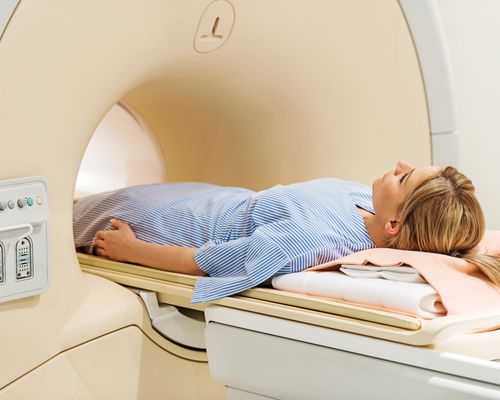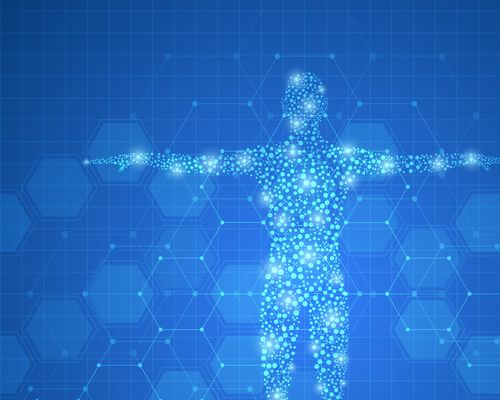Just in time: Life-saving device delivered before lockdown
MR-Linac units combine two technologies to precisely locate and treat tumours. The units are heavy and require specialised transportations to ensure the parts arrive at the hospital safely and on time. Racing against time, the experts at Kuehne+Nagel went the extra mile to deliver the unit to the hospital before the city went into lockdown.
- Client: Elekta
- Industry: Medical technology
- Solution: Time sensitive delivery of Elekta Unity MR-Linac, a magnetic resonance radiation therapy system used to treat cancer, prior to the city's Covid-19 lockdown
Challenges overcome:
- Special packaging for each component
- Transport and storage of the components combining sea and air
- Transportation to the hospital in different pieces due to size, coordinating delivery to ensure that engineers receive all the components at the same time
Going the extra mile is in our DNA
Paul is staring up at the giant metal ring dangling in the air. The object is a magnet, which is part of the state-of-the-art Elekta Unity MR-Linac, a radiation therapy system that allows doctors to see a tumour’s movements and its exact position during the delivery of therapeutic radiation. The system came all the way from Europe to the Methodist University Hospital in Memphis, Tennessee, offering new hope to patients with types of cancer that have been challenging to treat.
It took the KN PharmaChain professional, Paul, a 7-hour car drive from Atlanta to get to Memphis, but the clock was ticking and he was the only person in North America who knew how to get the parts in the hospital. This all happened in the nick of time, just before the city went into a partial “lockdown” due to the Covid-19 pandemic.
A 6-phase delivery
Paul joined Kuehne+Nagel Atlanta 23 years ago. Although he would not admit it, he has built a reputation that precedes him. His name and that of Kuehne+Nagel did not escape Elekta's radar when the Swedish manufacturer of radiation therapy equipment was looking for a logistics partner. They reached out to us in 2014. After a presentation, Elekta’s North America leadership was convinced that Kuehne+Nagel was who they needed to ship their MR-Linac treatment systems across the ocean. “That was the start of our cooperation."
Experienced, hands-on and a can-do mentality. Elekta's shipments require these qualities. "Elekta Unity has complex logistics," Paul explains. As a KN PharmaChain specialist, Paul has dealt with many challenging requests. "It's an impressive machine which merges a magnetic resonance imaging (MRI) unit and a linear accelerator into a single device." To ship this innovative cancer treatment device from Europe to America, Paul has been involved in every step, from designing the shipment plan to uncrating the parts. As of mid-August 2020, there are seven Elekta Unity systems clinical across North America and three under installation. All seven have been transported by Kuehne+Nagel under Paul's guidance.
"Before the first shipments to the U.S., I travelled to the UK to examine Elekta Unity and determine how to best box and ship it. Most of it is ocean freight with 8 TEUs per shipment because the load is too heavy to transport by air, and the other part comes in via air freight and comprises 10 tons. Only the magnet [i.e. the MRI unit] comes in via a plane. Once in the U.S., we put them into storage and truck them to the sites of installation. For the final steps - the installation in the hospitals - a 6-phase delivery is needed because the individual parts are too large and heavy to come in all at once,” Paul explains, adding that he's currently writing an elaborate working instruction in anticipation of more Elekta Unity systems to be installed across the country. "When the time comes that my team and I no longer suffice to single-handedly arrange logistics for Unity, this means that more patients will have access to the best cancer treatments. That is what we are rooting for."
Plan B
When Unity has crossed the Atlantic - quite an accomplishment as such - the job of Paul and his team is not yet finished. On the contrary. Paul: "We also coordinate the rigging and logistics for Unity in North America. This means that we do site surveys on the locations to define how we will go about the 6-phased delivery. We even go so far as to remove the debris afterwards." Much is at stake. Sometimes hospital walls need to be demolished to get the parts in. On top of that, delays should be avoided as hospital wings cannot be closed down for long and the engineers that have to assemble the machines are waiting. "There are many different parties to be aligned and the aim is always to reduce the inoperative time," Paul says.
But when working in logistics unexpected obstacles are often just around the corner, so you better have a plan B. When Paul received a phone call on a Wednesday morning that shuffled the cards, he and the team faced a big challenge. "We had a delivery to a hospital in Memphis coming up the next week and Elekta asked if we could do it earlier than planned, namely on Saturday. They also asked if we could do two deliveries instead of one. Then it dawned on me that Saturday was just 3 days away", he recalls. The reason for the last-minute change was the imminent lockdown due to Covid-19. Realising that it was indeed now or never, Paul and the team started calling around: to the hospital, truck drivers, installers, riggers ... to start the execution of plan B.
After getting everyone on board with the new plan, Paul stepped into his car for a 7-hour drive to Memphis. "Our usual riggers were not available on such short notice and nobody except for them and myself had ever done this before. Hence, I was the only one who knew how to best approach it." Besides, for complicated operations like this one, Paul always insists on being present. "For every Unity delivery I fly over to the destination a day early to verify if all the pieces are there and if the trucks are loaded. I am also in the lead for the rigging and you can see me pushing the equipment and cleaning up the debris. I think I speak for many Kuehne+Nagel colleagues when saying that our DNA does not allow us to be bystanders when we can help. We go the extra mile."
Thanks to this can-do mentality, the deliveries were successfully finished just in time before the lockdown. For Paul and his team, the gratitude of the customer was worth the hectic three days up until the installation. "We're just happy to work with Elekta because it feels like a privilege in many ways. First, we can help them to bring life-saving treatments to people in America. Secondly, they trust us. They believe in our partnership and let us go about our work knowing that we will do as we promised." Whatever it takes. For when it matters most.



